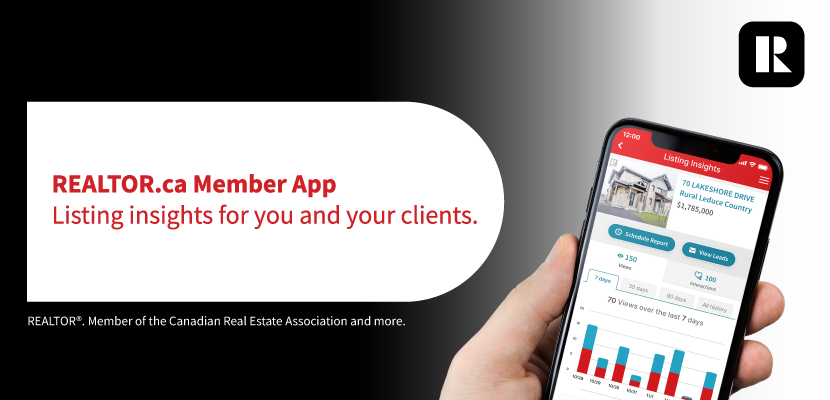Some agents are phenomenal in listing appointments, while others often feel anxious, lack confidence and talk way more than they likely ever set out to. This makes it so easy for an agent to allow themselves to get attached to the outcome of winning a listing.
Here’s a simple example: you wake up one day and think, “Oh great, I’ve got a listing presentation today. I hope I get the listing!” And, fair enough, that is an exciting opportunity.
Don’t dominate or talk-and-tell
However, what can actually happen is that you end up focusing your approach on getting the listing, which means the resulting conversation can become a bit of a talk-and-tell.
You might not even realize how much you dominate the dialogue and potentially sound very similar to other agents who take more of a “selling and convincing” type of approach by talking up all the features of what they can do and why they should be chosen to list the property.
Turn the conversation around
So, here’s a different approach you can try that serves to free you of any compulsion to dominate these types of conversations. It’s essentially a simple solution: try turning the conversation around!
After all, it’s not all about you. Let’s be realistic here, how often do clients say, “Hey, guess what, I’m just going to sit back. Can you give me your presentation for the next 45 minutes?” Also, do you believe that an efficient presentation is everything? What if you turn that thinking around to something more in terms of an effective conversation is everything? What changes for you?
Focus on winning the client and earning their listing
Here’s an idea. Instead of focusing on winning the listing, focus instead on winning the client and earning their listing.
An obvious way to achieve this comes through the quality and depth of connection that you can attain. This includes the quality of the questions you ask and the quality of your listening that can then power up the asking of more relevant, impactful questions — questions that help you and your client gain as much objective clarity as possible, together as working partners.
Get their agenda items first
A great place to start this process is to simply ask your client, “What would you like to get out of our conversation today?” followed by, “What else?
Once you have those agenda items, you can then move to, “Can I share with you what I’d like to get out of our conversation today?” This then puts the focus on the process of properly engaging and connecting.
Create a comfortable environment and unrushed presence
Give yourself enough time to share a warm, safe conversational environment and a genuine, unrushed presence that allows your clients to express themselves as much as possible.
This can be a big help in building trust and connection and has the potential to enhance your chances of earning their listing.
So, let go of attachment to outcome, resist the urge to talk and tell that may end up almost commoditizing yourself, turn the conversation around, ask better questions, listen well and look to make a real conversational impact.
Aim to build better connection, better engagement and, most importantly, a better experience for your clients. Win the client and earn their listing.
Hope this helps add value to your toolkit!

Mark Winter is the Director of Agent Development and UBC-Certified Organizational Coach with Macdonald Real Estate Group in British Columbia. Mark’s vision is to elevate the professional performance of real estate agents and enhance their communication skills. He is also the author of A Different Conversation.


















Mark’s advice is a breath of ‘fresher’ air vs. the industry-dominant tired old advice monetizing strategic-strategies designed to get positive-feedback “yes” answers from marks—pun intended:-)—to pre-defined questions. No one likes being manipulated by slick, fast-talking sales people who are out for their own interests…no matter how much they say/protest that they are not. Let’s face it, being a Realtor is a commission-only job. No sale; no money. Mark’s ‘fresher’ advice is still strategic/manipulative in nature, as is all sales advice designed to help the salesperson score more listings/sales. No sales; no broker income. Simple. Sorry Mark; no insult intended. You are simply doing your job to the best of your ability: Make money for your brokerage. Trying to develop commissioned sales people—who might just be giving real estate sales a try—to make sales and still maintain a degree of honesty is a tough roe to hoe. I believe you are doing your best to do just that.
For what it’s worth, here is my further take on the subject:
One of the many vocations I worked within over the years was as a conciliator in an Ontario government agency (TARION CORP.). A successful conciliator very quickly had to present himself/herself to the disputing parties at a conciliation meeting as being a trusted listener and potential adjudicator if an agreement could not be reached regarding issues in dispute. Therefore, a conciliator’s job boiled down to establishing trust and a genuine sense of being there to help both parties to the dispute(s) resolve their issue(s) amicably. Not a small feat in most cases. I submit that a Realtor’s prime directive ought to be to develop a natural personality type that promotes the sincere desire to help folks out with their buying/selling wishes…no matter the Realtor’s financial implications. If you can do that—forgetting about the money—you will be a valued human go-to resource for all with whom you will come into contact going forward. Remember: A Realtor represents only ‘one’ party to any potential transaction. The other side has their own representative. Avoid the behind-the-scene let’s-pull-this-deal-together phenomena that so often percolates throughout this often-slippery business.
Regarding my overall advice: I speak herein from experience. I watched other so-called “professional-expert” conciliators doing their thing telling homeowners and builders alike what was warranted and what was not, right out of the gate, pissing everyone off, and then watched how ‘ALL’ of them often ended up being appealed in C.R.A.T. (Consumer Registration Appeal Tribunal) trying to defend their decisions before the tribunal…and losing as much, if not more, as/than they won. That wasn’t for me, so I broke ranks, and did my thing, as described above. Guess what? During my nearly five-year stint with TARION, I was never appealed. I was the only conciliator amongst the fifty-six working across Ontario to never have been appealed. I was paid via salary. I would have made much more had I been paid via merit/performance…read: commission. Think about it.
You can take my unsolicited advice to the bank.
BTW; Yes: I did work as a Realtor, and I espoused the same non-strategic natural personality-type approach described above that melded nicely with the demands of my profession. Yes; I did very well for myself…as well as expected. I was not greedy, constantly eyeing the leader board, or my monthly income vs others in the office. My clients instinctively knew that as well. The truth of the matter is this: Your clients’ interests are what counts, not your broker’s. You are a fiduciary working for your “clients'” interests…and your clients’ only. Remember that, and if you can afford it financially, you will ultimately succeed as a professional.
Correction: Re my Feb. 18, 2024, 2:33 p.m. comment:
The word “roe”—“…a tough roe to hoe…”—at the end of paragraph one, should read “row”. Duugh.
Thanks for your comment, Brian. Most real estate professionals need guidance on how to approach client conversations with a “non-strategic natural personality-type approach” as you describe, and that aligns what I am sharing – a coaching framework to allow agents to approach client conversations with genuine curiosity, more empathy and more effective communication skills that focus the conversation on the client to get the best outcomes for them – which sometimes includes making a decision not to buy or not to sell at that time. My suggested approach is to be natural and authentic, and less “sales script” driven. I believe that an agent can work for the best interests of their clients and make a living for themselves (and the brokerage as a byproduct).